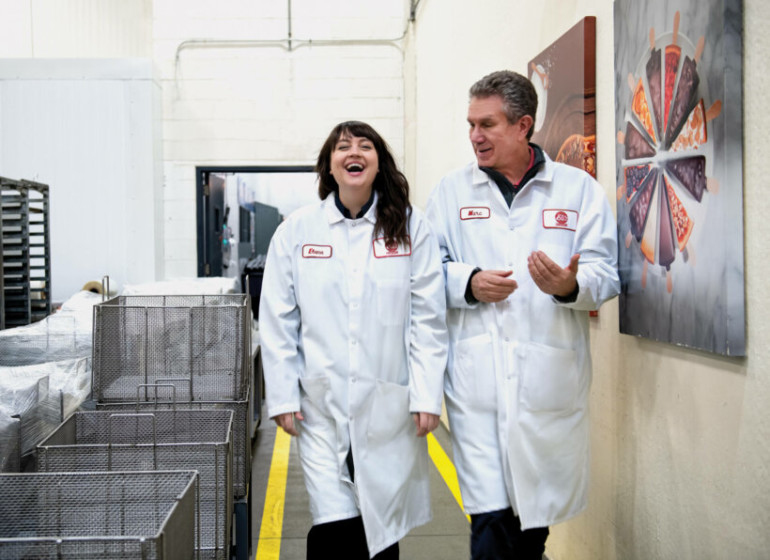Family-owned businesses are considered the backbone of the American economy. According to the US Census Bureau, they comprise 90% of all business enterprises in North America. Jill McCall, MBA, JD, CAE, Director of the Family Business Center at Loyola University Chicago says, “Family-owned businesses positively impact the general business climate because they set good examples. They make a difference in their communities, tending to give back in time and investment.”
This month Better recognizes 10 successful, Chicago-area, family-owned businesses making an impact not only locally, but around the world. These companies were nominated by our readers and other area business leaders previously honored.
John B. Sanfilippo & Son
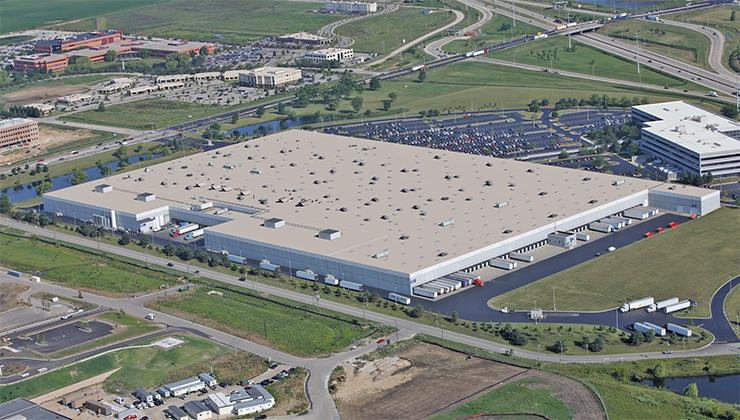
When Gaspare Sanfilippo emigrated to Chicago from Sicily in 1910, he had aspirations of financial success in a new country, but he likely never envisioned his kitchen-table business of shelling pecans becoming one of the fastest growing snack and ingredient nut companies in the world.
Sanfilippo founded John. B Sanfilippo & Son (JBSS) 101 years ago, shelling 45 pounds of nuts per day for one customer. Today JBSS processes well over 790 million pounds of nuts each year at processing facilities in California, Texas and Georgia which are sold under their brands Fisher Nut, Orchard Valley Harvest, Squirrel Brand and Southern Style Nuts. JBSS also owns several private label brands of nut products.
The company with corporate headquarters in a one-million square foot facility in Elgin has remained in family hands throughout its long history. Currently CEO Jeffrey and COO Jasper Jr. are the fourth generation to be in charge.
Recognizing their responsibility as a global leader in food production to reduce their impact on the environment, JBSS is focused on sustainability and stewardship. They invest in infrastructure for Africa’s farming communities where cashews are grown and support the indigenous South American tribes harvesting Brazil nuts in the Amazon.
Locally the Sanfilippo Foundation supports the efforts of more than 350 charities by hosting events at the Sanfilippo estate in Barrington, Illinois. This private residence houses the family’s vast collection of automatic music instruments and Jeffrey’s Perfume Passage Collection. Although the Sanfilippo Estate is not open to the general public, it is available for educational tours and charity fundraising events.
Baldwin Richardson Foods
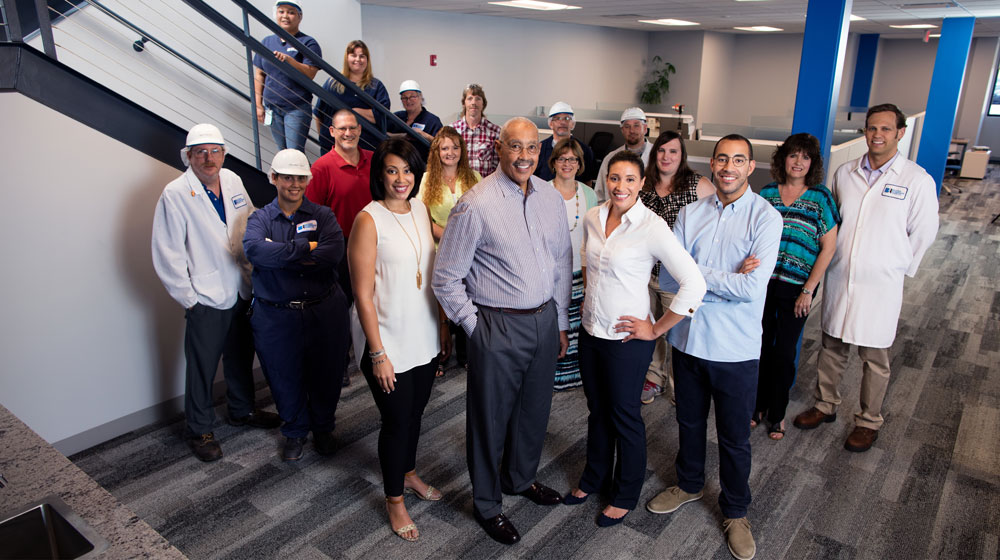
The next time you drizzle Mrs. Richardson’s hot fudge over ice cream, you’ll be indulging in a treat that was first introduced more than one hundred years ago. That’s around the same time Baldwin ice cream was developed by seven Black postal workers opening an ice cream parlor in Washington Park. 51 years later under the leadership of Eric G. Johnson, Baldwin Ice Cream purchased Richardson Foods to create Baldwin Richardson Foods (BRF).
Today, BRF is one of the largest Black family-owned and operated businesses in the food industry, supplying ice-cream toppings and condiments to partners across the country, including Hannaford, Food Lion, Stop & Shop, The GIANT Company and Giant Food.
BRF operates two manufacturing facilities in New York state, but the corporate headquarters and the culinary innovation center are both in Illinois.
Johnson was honored as a Loyola Family Business Hero in 2021, a year after stepping down as president. His daughter, Erin Tolefree took over the role, but Johnson remains the company CEO. His other daughter Cara Hughes is Vice President, Customer and Community.
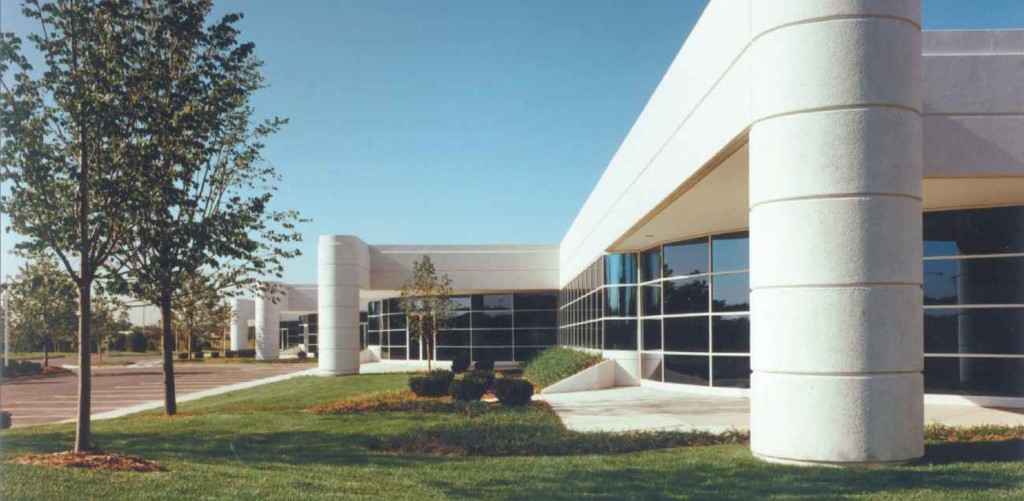
BRF is committed to giving back to the community by assuring that students have educational opportunities regardless of their socioeconomic circumstances. They offer full four-year college scholarships and living expenses to students in need who intend to study entrepreneurship, economics, or food science.
Johnson is a graduate of Babson College and currently serves on the school’s Board of Trustees. He is also a member of the Board of Directors for the Urban League of Rochester, New York. Tolefree is on several boards in Rochester including Rochester Regional Health, the Finger Lakes Regional Economic Development Council, ESL Federal Credit Union and ROC2025. And Hughes is a Board trustee at her alma mater, Spelman College and a member of Chicago’s After School Matters Board of Directors.
Powers & Sons Construction
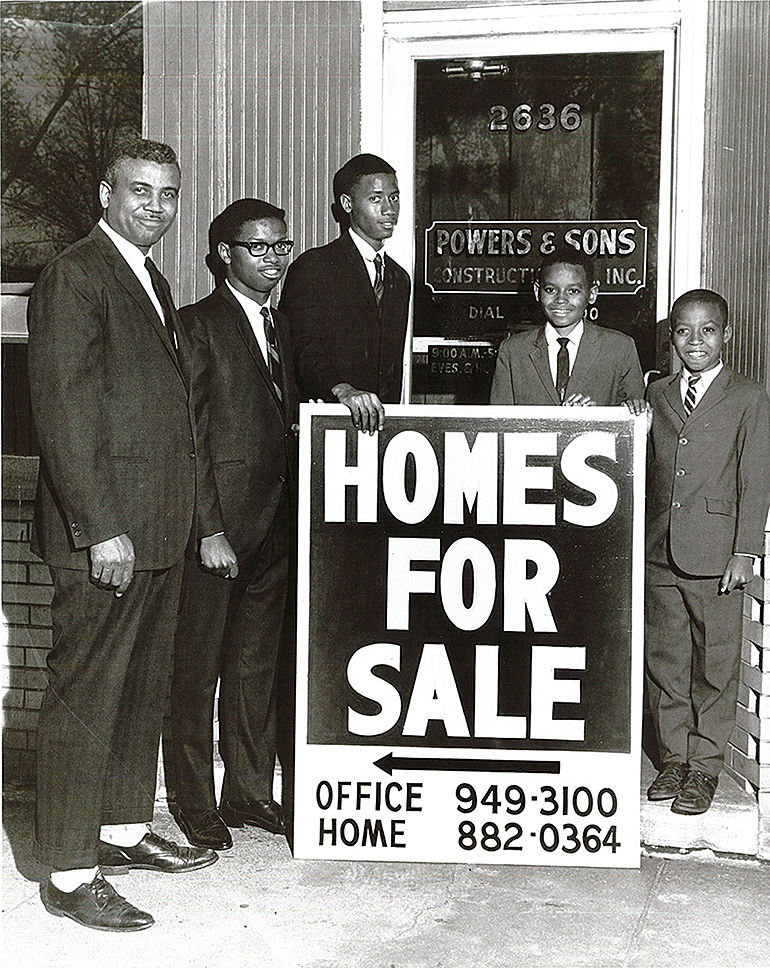
When Barack and Michelle Obama lifted the first shovels of dirt from the site of the Obama Presidential Center in September 2021 they not only celebrated the groundbreaking for the museum and gathering space, they kicked off construction by a consortium of companies who came together to build the $500 million project. Powers & Sons Construction, an award-winning firm specializing in general contracting, construction management, design-build and owner’s representative projects took a leading role in creating the alliance that is scheduled to complete the work in 2025.
A third-generation family-owned company, Powers & Sons Construction is one of the nation’s largest minority-owned firms having completed over $1 billion in business since Mamon Powers, Sr. founded it in 1967. Current CEO and Chairman of the Board Mamon, Jr. and his brother Claude, COO and President, are assisted by Mamon Powers III who is President, Indianapolis & Executive Vice President, and Vice President Kelly Powers Baria. They run the company from an office in Chicago and two offices in Indiana.

Powers & Sons Construction has been recognized by the American Institute of Architects, the Construction Advancement Foundation, the Chicago Building Congress, Keep Indianapolis Beautiful and was named a Loyola Family Business Hero in 2021 for saving jobs, meeting customer demands, and keeping employees safe throughout the pandemic.
The company recognizes its responsibility to the local community and encourages employees to pursue activities that make a difference. Especially committed to education, Powers & Sons Construction endows the Powers & Sons Construction Company Scholarship and the Leolean Powers Scholarship for college students. They also fund the Research, International, Service and Experiential Learning (RISE) Diversity Scholarship with the Kelley School of Business at Indiana University-Purdue University Indianapolis (IUPUI) and support 21 other organizations in Indiana and Illinois including Chicago Urban League, United Negro College Fund, and Habitat for Humanity.
Sloan Valve Company
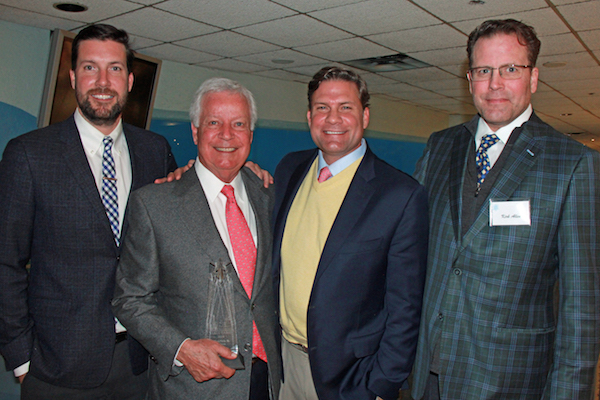
We don’t give much thought to the mechanism that rushes water through the toilet once we flush. That’s because early in the 20th century, William Elvis Sloan invented the Royal® Flushometer, an efficient, water saving apparatus that revolutionized plumbing and is still in use today. Sloan Valve Company is the world’s leading manufacturer of commercial plumbing systems, also producing electronic faucets, soap dispensing systems, sink systems and vitreous china fixtures for commercial, industrial and institutional markets worldwide.
Four generations of Sloan family members have led the organization. When W.E.’s grandson, Chuck Allen, was elevated from President & CEO to Executive Chairman, rather than pass the baton to one of his sons, he created the Office of President and installed all three in the roles of Co-Presidents & CEOs. When named Honoree of the Year by The Wholesaler in 2015, Chuck Allen commented, “I am so proud of the great job they have done leading the company as Co-Presidents.”
The Allens worked with the Loyola Family Business Council to design a plan of action for this unique leadership model. “It’s worked very well. It calls upon their upbringing of respect and love for each other to work cooperatively together,” Allen explains.
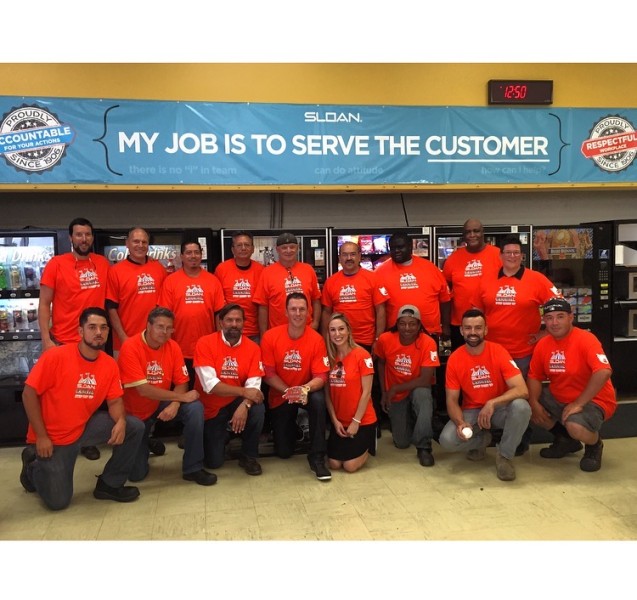
The Loyola Family Business named Sloan Valve Company a 2022 business hero. Always responsive in times of uncertainty, Sloan provides mobile restrooms to communities facing climate disasters like wildfires, tornadoes and hurricanes. Internationally, they are collaborating with Shiloh Homes of Hope, to provide energy-efficient and sustainable homes in Kenya.
Sloan is a Legacy Partner with the Chicago Cubs and the team’s official water efficiency partner. The Cubs Spring Training facility in Mesa, Arizona is named Sloan Park.
The Duchossois Group
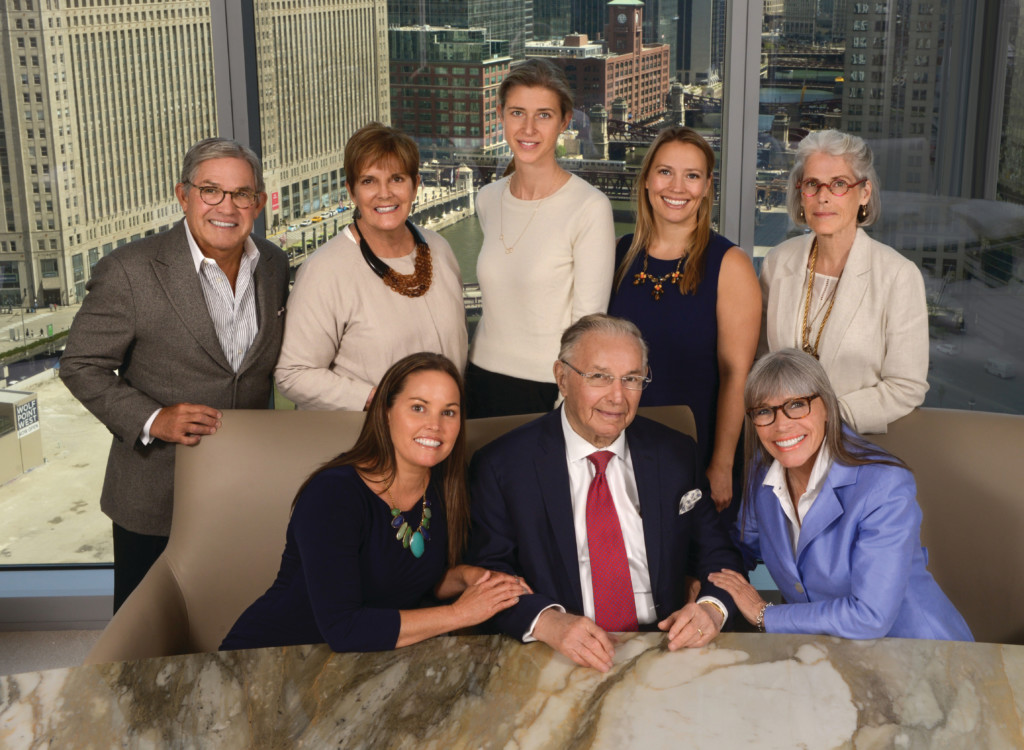
The Duchossois Group was built on an eclectic catalog of products starting with farm implements at the beginning of the 20th century and eventually adding technology and electronics in the 2000s. The Duchossois Group was founded by A.J. Thrall in 1916. Thrall’s son-in-law, Richard L. Duchossois, a driving force in growth following World War II, bought the Thralls’ interest in the 1950s and renamed the company Duchossois Industries. A second renaming to the Duchossois Group occurred in 2008. Between 2011 and 2015, the Group sold five of its operating companies and created an investment firm.
Richard, who died at the age of 100 last year, was succeeded by his son Craig as chairman and CEO in 1981. Craig now serves as Executive Chair. A third generation of the family is also involved with seven members serving on the Duchossois Group’s fiduciary board. In addition there is a family council that Craig Duchossois’s daughter, Ashley Joyce, a Director of the company and President of the Duchossois Family Foundation, says, “Provides a venue for family members who don’t work in the business to learn about it without getting our fingers in the weeds.”
The Duchossois Family Foundation awards grants to organizations meeting needs in the local community. Recent grantees include the American Red Cross, Chicago Children’s Advocacy Center, Cradles to Crayons and Metropolitan Family Services. In 2017, the Foundation donated $100 million to the University of Chicago Medicine establishing the Duchossois Family Institute which enables UChicago Medicine to explore how the human immune system, bacteria in the body and genetics interact, and how they can be harnessed to promote wellness, reduce disease and keep people healthy.
Eli’s Cheesecake
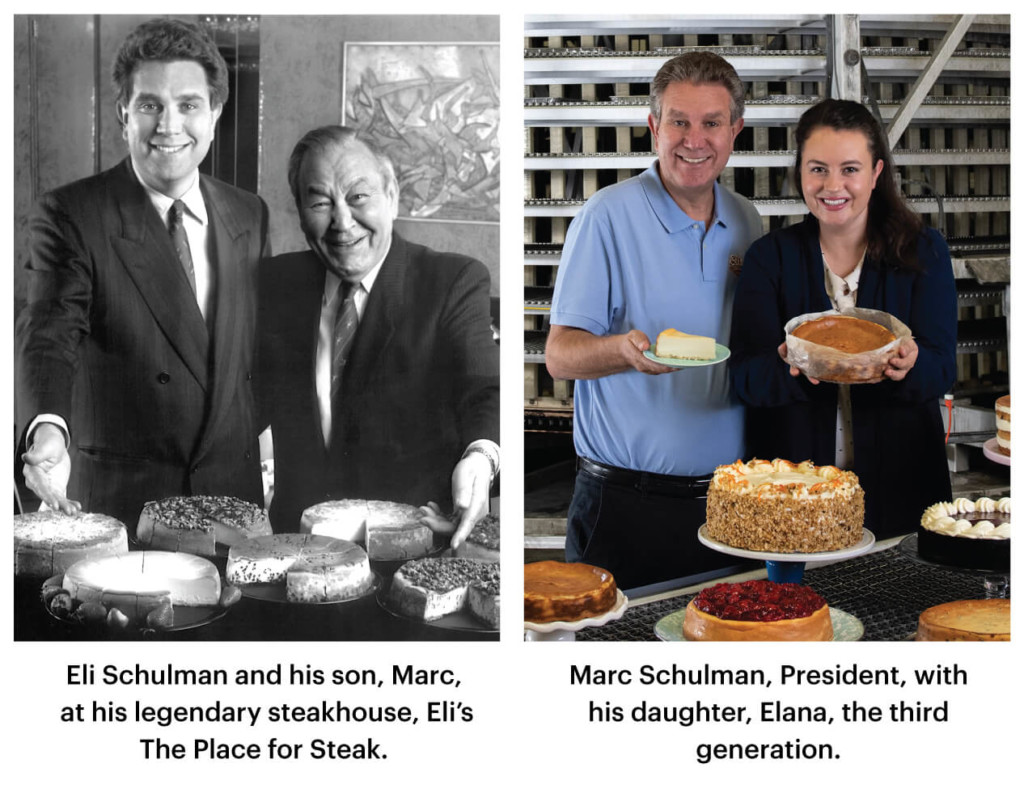
Eli Schulman was an entrepreneur in the truest sense. He was 16 when his father died in 1926 leaving him to support his mother and two sisters by selling newspapers, delivering packages, hawking shoes and selling scorecards and seat cushions at local ballparks during the summer season. In 1940 he took advantage of an opportunity to buy a foreclosed coffee shop, the first of four restaurants he would eventually own including Eli’s Stage Delicatessen and Eli’s The Place for Steak.
Always searching for the ultimate dessert to top off a meal, Schulman experimented with cheesecake recipes in the kitchen of his steakhouse. After testing a few versions on his regular customers, he finally created the Chicago-style cheesecake, and a new treat was born. The cheesecake was so popular Eli’s son, Marc, an attorney, decided to open the Eli’s Cheesecake Company. Today, Eli’s Cheesecake makes 100 varieties, preparing 25,000 a day that are sold in stores around the world and online.
Four years ago, Marc’s daughter, Elana joined the firm as Director of Special Projects. She is quoted on the company website saying, “I get to carry on my grandfather’s legacy while working and learning from my Dad, the most caring and charitable person I know. And I love cheesecake!”
Eli’s Cheesecake continues to adhere to Eli’s golden rules, charity will never bust you and treat others as if you were the other by supporting more than 500 nonprofits annually including The Happiness Club, a free performing arts education program for Chicago’s kids. The company invests in education through a partnership with Wilbur Wright College and works with RefugeeOne to provide jobs for refugees and immigrants.
Griffith Foods
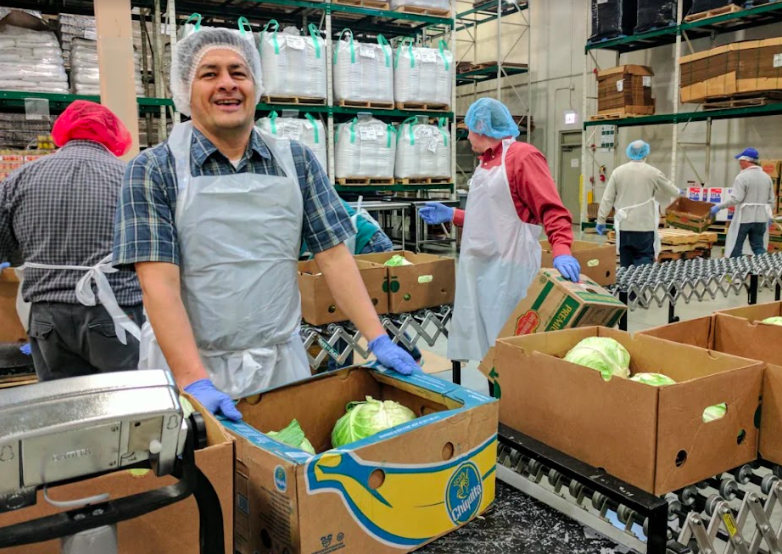
Good food is more than culinary art. It involves a lot of science, as Griffith Foods‘ founders, father and son duo, Enoch Luther Griffith and Carroll Ladd Griffith discovered. Since the beginning, the company has focused on improving food safety while making better meat and bakery products.
Established in Chicago in 1919 and now headquartered in Alsip, Griffith Foods operates in more than 30 countries around the world collaborating with food companies to develop seasonings, sauces and gravies, flavors and food safety ingredients. Executive Chairman Brian Griffith, the fourth generation to lead the company, stresses the importance of sustainability for food sources for an ever-expanding global population. He explains the company’s purpose as blending care and creativity to nourish the world and is quoted saying, “We play at the intersection of sustainable agricultural systems and health & nutrition . . . better for you, better for the planet.”
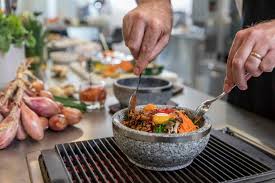
Griffith Foods sponsors the Discovery Partners Institute (DPI) and the University of Illinois College of Agricultural, Consumer, and Environmental Sciences College (ACES) Food and Agriculture Student Immersion Program. Dean Kim Kidwell describes the program on the school’s website as bridging the gap between academia and industry. “The multidisciplinary program gives students real-world, hands-on experiences to solve complex challenges with an industry partner. It simultaneously opens the door for industry to have a first look at academia’s cutting-edge research.”
The Griffith Foods business philosophy is a triple-bottom-line sustainability platform of people, planet and performance and guides how they behave, conduct business and treat people. The company donates 1% of operating income to local charities in the communities they serve. In Chicago, Griffith Foods supports entrepreneurs at The Hatchery Chicago, a non-profit food and beverage incubator dedicated to helping local entrepreneurs build and grow successful businesses.
W.S. Darley & Co.
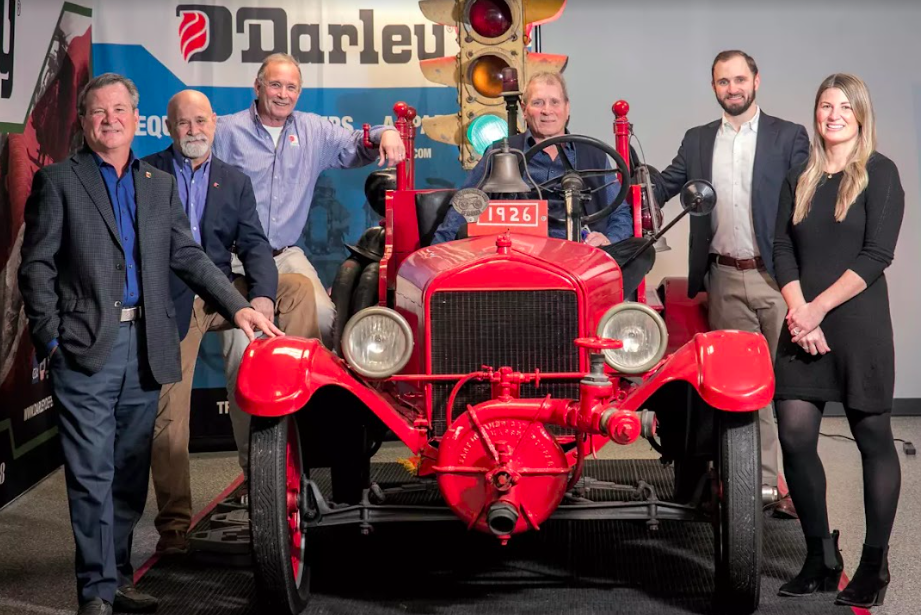
While other young boys were playing with toy fire trucks, Paul C. Darley was already working for W.S. Darley & Co, the company that outfits the real thing. “At eight years old I was cleaning the shop and offices on the weekends,” he explained in a published interview. “I emptied garbage cans, swept the floor and even cleaned out the water tank we used to test fire engines.”
Today, Darley is the President & CEO of the company his grandfather William founded in 1908. The four-generation family business is a world leader in equipping the firefighting and defense industries. Their motto is You Serve Others. We Serve You. ™ which they do by supplying first responders and the military with fire fighting pumps, tactical and defense equipment, virtual reality and unmanned systems.
Ownership of the company is primarily held by 16 third-generation family members, 10 of whom work in the business in what they call a cousin consortium. While Paul oversees company operations, his brother Peter and cousins, Jeff Darley and James Long are an executive committee that backs him up. Paul’s brother Stephen leads a family council that outlines a family participation plan that includes the education and outside work experience required for family members to join. “A stronger family means a stronger business,” says Paul. “Since those of us in the third generation view ourselves as stewards of this business and plan to gift it to the next generation, our aim is to continue to grow the business for the benefit of all.”
Not only does W.S. Darley & Co. equip first responders, they respond to disasters by supplying water to impacted communities coping with crises. The company also supports local and national organizations through the Darley Family Foundation. The William J. Darley Charity Fund, a 501c3, provides funding to company employees and their families facing financial hardship.
Nielsen-Massey Vanillas
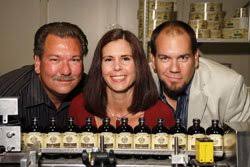
It’s unusual for a family-owned company to cede leadership to an outsider, but that’s what Nielsen-Massey Vanillas did in 2017 when Craig, Vice President of Sustainability; Beth, Vice President of Culinary; and Matt, Vice President of Strategic Initiatives, Nielsen — the third generation to manage the company — decided an outside Board of Directors and CEO would guide them forward in the next phase of development. Jonathan Thompson was appointed CEO in 2020.
Nielsen-Massey Vanillas is the world’s leading manufacturer of premium, pure vanilla extract and flavor extracts and the first company to introduce an organic, fair-trade vanilla from Madagascar. The flavorings are produced at two state-of-the-art manufacturing facilities — one at the company’s headquarters in Waukegan and one in Leeuwarden, Netherlands. The products, which are sold internationally, can also be purchased online. The company began producing vanilla more than 100 years ago and prides itself on the relationships it’s forged over decades with farmers around the world who hand-pick the vanilla beans they use.
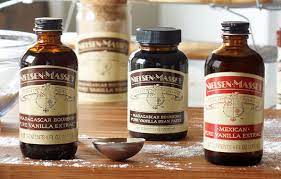
Nielsen-Massey is also invested in relationships locally through a Community Relations Initiative that supports charities committed to education, youth, veterans and the environment. They also actively promote volunteer service among employees to demonstrate as a team how to make a difference.
The Nielsen-Massey Foundation was founded in 2009 with a mission to assist disadvantaged children and adults with education and leadership development, especially in the culinary arts. The Foundation also considers requests for assistance in the development of sustainable environmental practices or for programs benefiting people in countries of need. Craig, Beth and Matt all sit on the Board, along with their mother, Camilla — who had previously led the company with the siblings’ father, Chat. Nielsen-Massey Vanillas donates 10% of its profits to the Foundation.
Ozinga
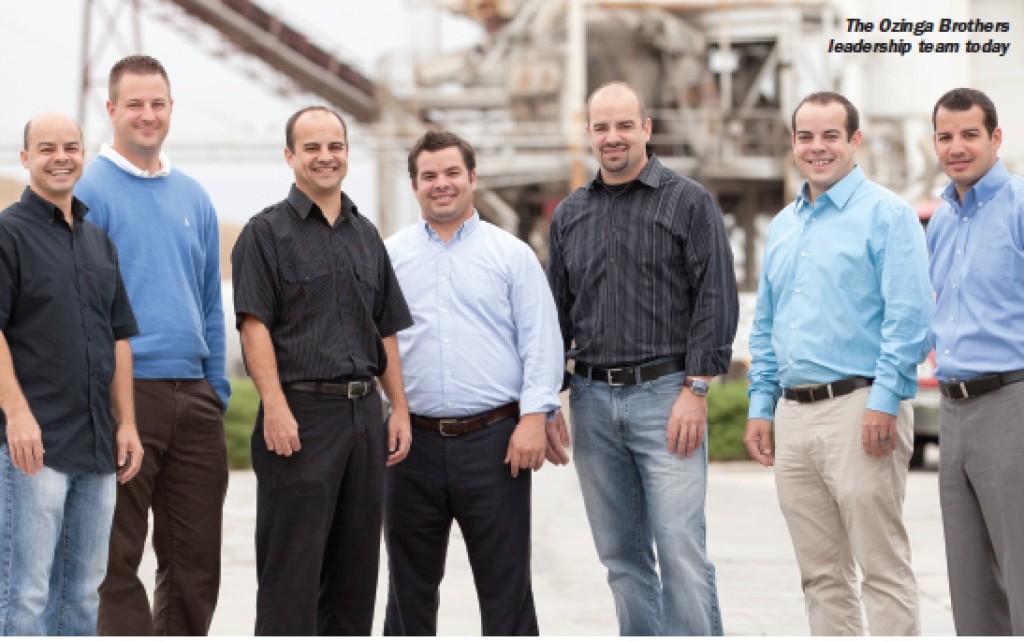
There are 32 children in the fifth generation of the Ozinga family. Many are poised to take over the company from their six fathers someday. They would be continuing a family tradition that began in Evergreen Park in 1928 when Martin Ozinga, Sr. and local businessman Bill Conrad established Conrad & Ozinga Coal and Coke Company.
Through the decades Ozinga has expanded its product and service offerings to meet the needs of builders throughout Illinois, Indiana, Michigan and South Florida. Today they provide concrete, bulk materials and energy solutions, as well as transportation services.
Ozinga concrete was used to build Comiskey Park — now known as Guaranteed Rate Field — as well as in the renovation of Soldier Field, and in the construction of the Dan Ryan Expressway — the largest project in the company’s history.
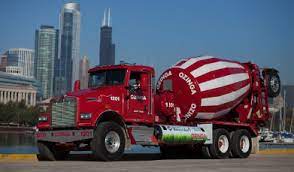
CEO Marty Ozinga explains how Ozinga operates when he says, “Our commitment to serving our co-workers, customers, and neighbors with integrity is the foundation of everything we do. We are always striving to do better than we have ever done before.”
Ozinga continues to grow as it adds more smaller businesses. Ozinga believes that acquiring companies keeps them operating, brings jobs to communities and adds talented professionals to the family. Recently the family expanded their portfolio when Ozinga Ventures, opened in 2020 as a financial investment firm helmed by Aaron Ozinga.
Ozinga has a legacy of serving and making a positive impact in the areas where they live, work and play. They support local charities and organizations like Big Brothers Big Sisters of America and American Cancer Society Making Strides Against Breast Cancer walks. Organizations are invited to submit requests for support on the Ozinga website.
More From Better:
- 10 of Chicago’s Top Black Women of Impact — 2023
- How To Help: These Organizations Aiding Domestic Violence Survivors Need Your Support
- Secrets to a Happy Life: Lessons From the World’s Longest Scientific Study of Happiness
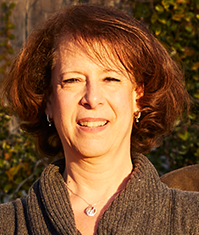
Susan Solomon Yem is an internationally published writer who likes telling other people’s stories. She enjoys writing about parenting, education, and how individuals achieve greatness in their chosen endeavors.
